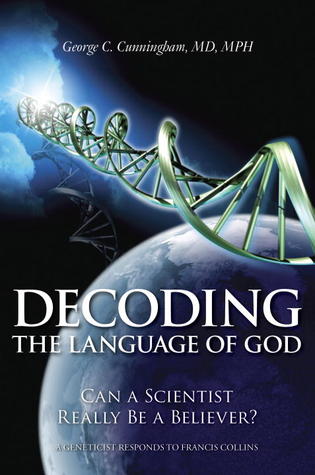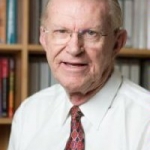Title: Decoding the Language of God: Can a Scientist Really Be a Believer?
Author: George Cunningham, MD, MPH
Publisher: Prometheus Books
ISBN: 978-1591027669
Pages: 269, Paperback & Kindle Edition
Genre: Religion/Science
READ SPOTLIGHT
Synopsis
In his bestselling book, The Language of God, Francis Collins—the new director of the National Institutes of Health and the scientist who led the Human Genome Project—attempted to harmonize the findings of scientific research with Christian belief. In this response to Collins’s work, fellow geneticist George C. Cunningham presents a point-by-point rebuttal of The Language of God, arguing that there is no scientifically acceptable evidence to support belief in a personal God and much that discredits it. Written with admirable clarity for the nonscientist, Decoding the Language of God covers much of the same ground addressed by Collins in his book: • Do moral behavior, altruism, and similar moral standards across cultures indicate that humans are somehow in touch with a divine lawgiver, as Collins argues? Cunningham cites data from behavioral genetics that suggest a purely naturalistic explanation for morality. • The existence of evil, both natural and human-caused, has always been a major stumbling block for religious apologists. Cunningham points out how Collins fails to adequately address this issue and the difficulty of reconciling belief in a good God with the existence of evil. • Collins refers to the origin of the universe and anthropic coincidences as evidence of God as creator of all of reality. By contrast, Cunningham notes that there are naturalistic interpretations for the big bang and the fine-tuning of the universe, which adequately explain this evidence. Cunningham also devotes chapters to the unreliability of the Bible as a basis for belief; the conflict between naturalistic explanations of reality, which are anchored in scientific research, and supernatural interpretations, which are not; and the many difficulties in conceptualizing the origins of the universe in terms of a personal God. Unlike recent hostile attacks on religious belief, Cunningham’s respectful, well-reasoned discussion will appeal to open-minded people across the whole spectrum of belief and unbelief. As Collins’ appointment once again casts a spotlight on the ability of a individual who publicly promotes his faith to serve the best interests of science, this response to his work is more timely than ever.
About the Author
George C. Cunningham, MD, MPH (San Francisco, CA), now retired, is the former chief of the Genetic Disease Branch of the California State Department of Health Services. He has published more than 150 articles in scientific publications, including the New England Journal of Medicine, Lancet, the American Journal of Human Genetics, and Pediatrics. His education includes graduation with a B.S. from the Jesuit University of San Francisco, where he received training in theology and philosophy, and successive attendence at University of Southern California, University of California Berkeley and University of California Los Angeles where he received his M.D, As a member of the Committee on Ethics of the American College of Medical Genetics, he was one of the authors of the organizations’ Ethical Code. He organized the Advisory Committee on Human Cloning for the state of California which issued the policy document “Cloning Californians” He is the receipent of many state and national awards for his statewide programs of screening pregnant women and newborns for preventable genetic and birth defects.



